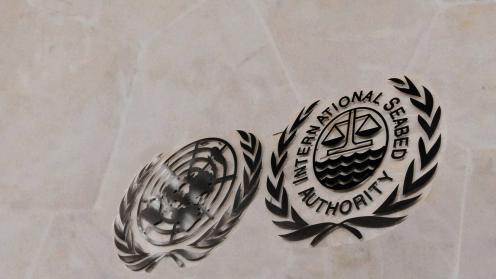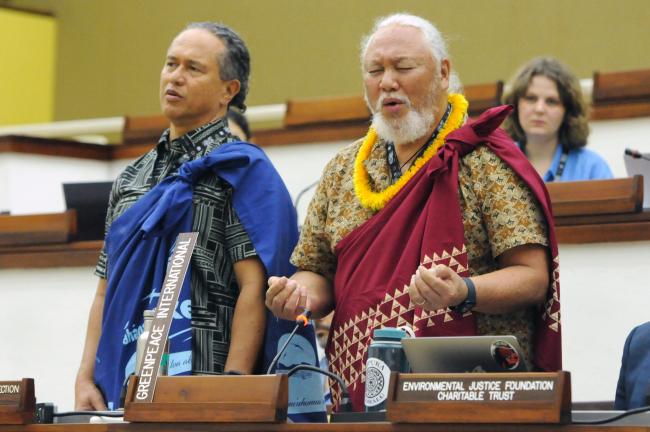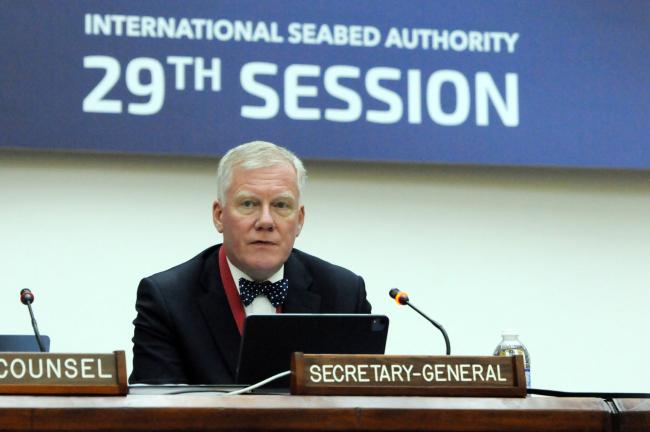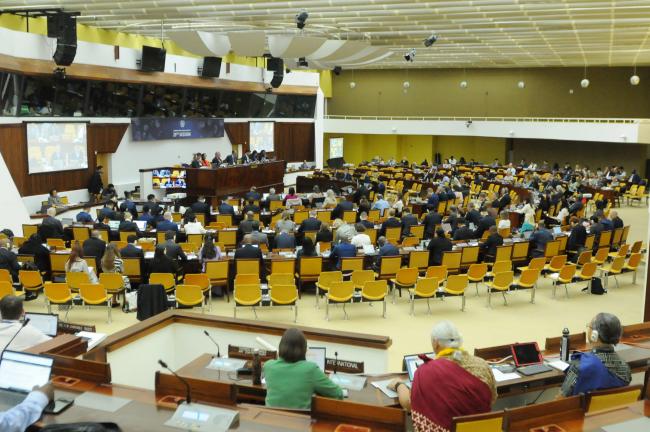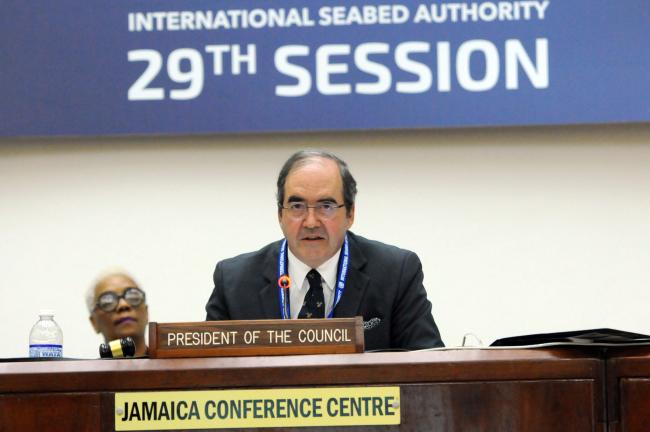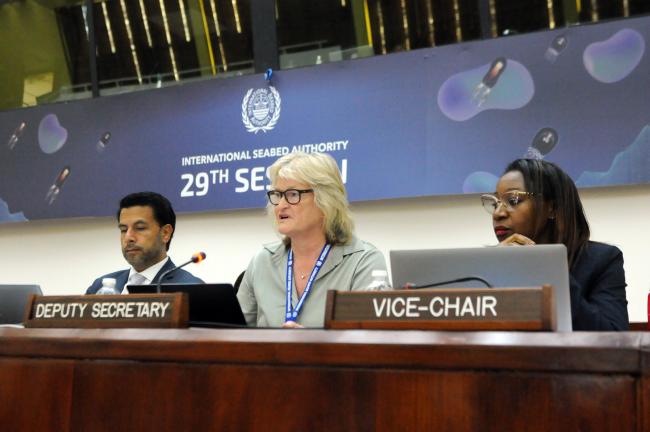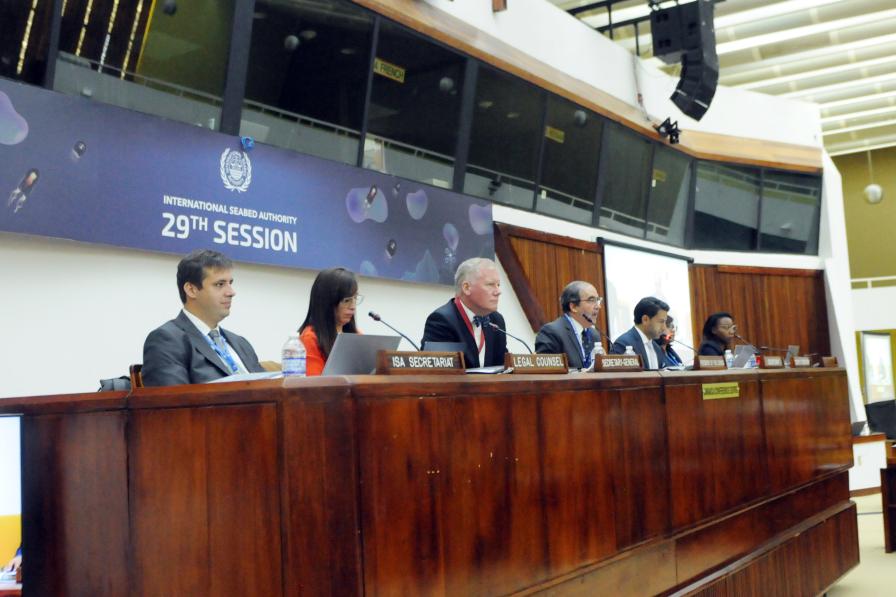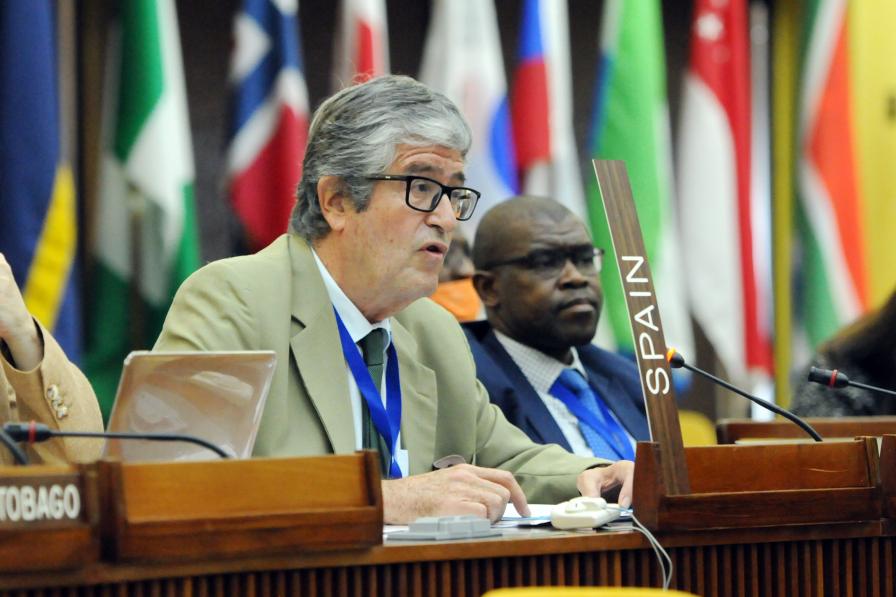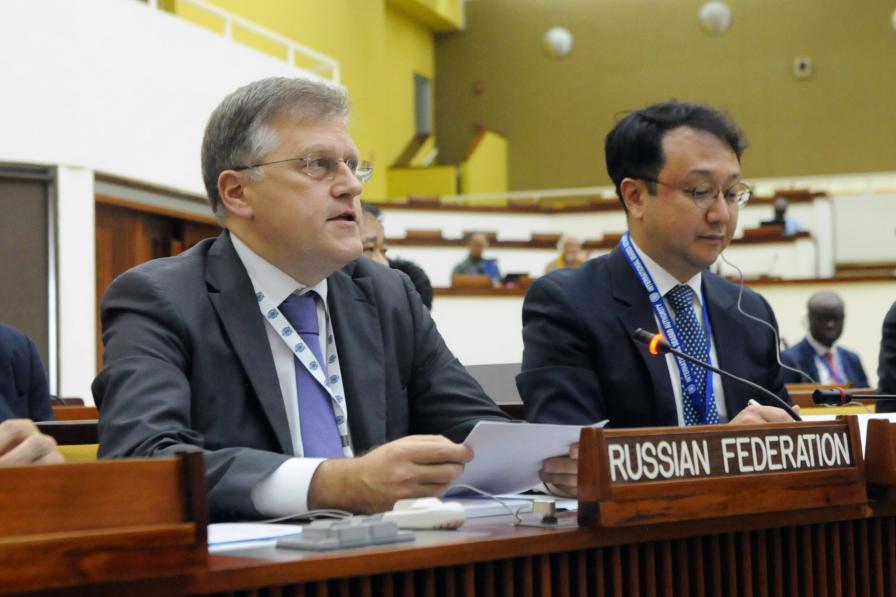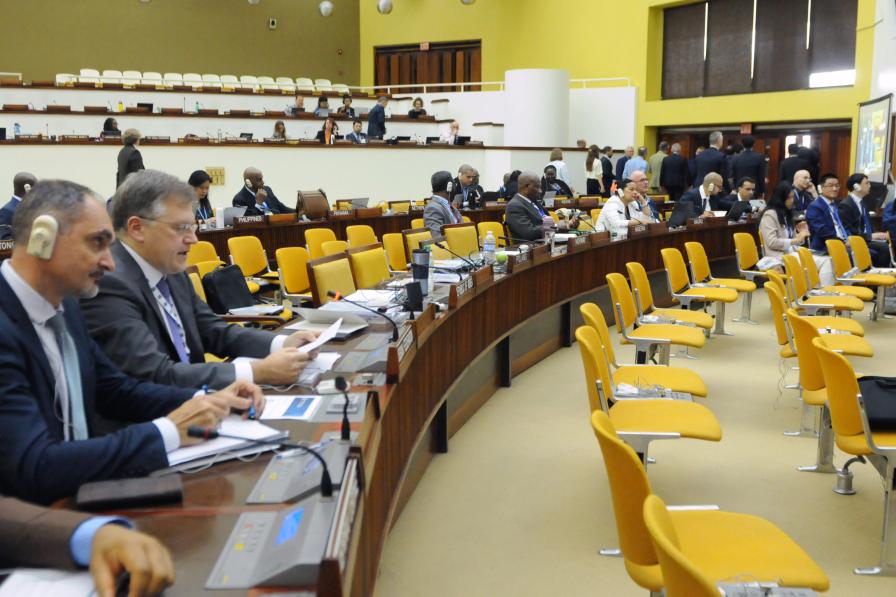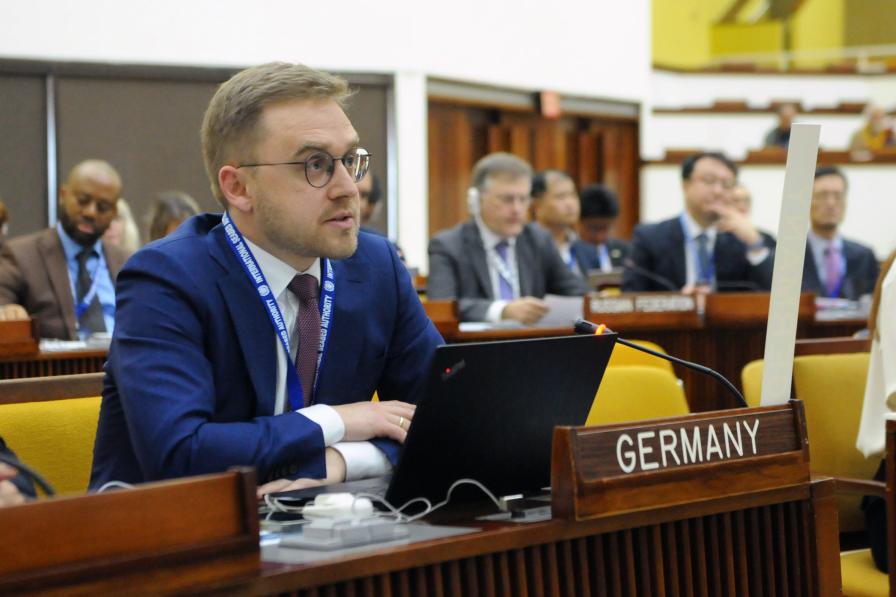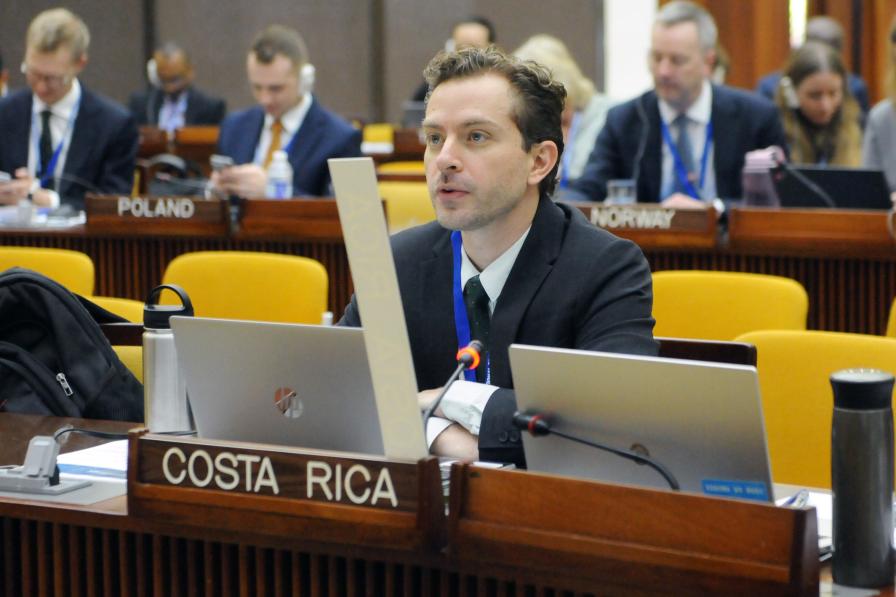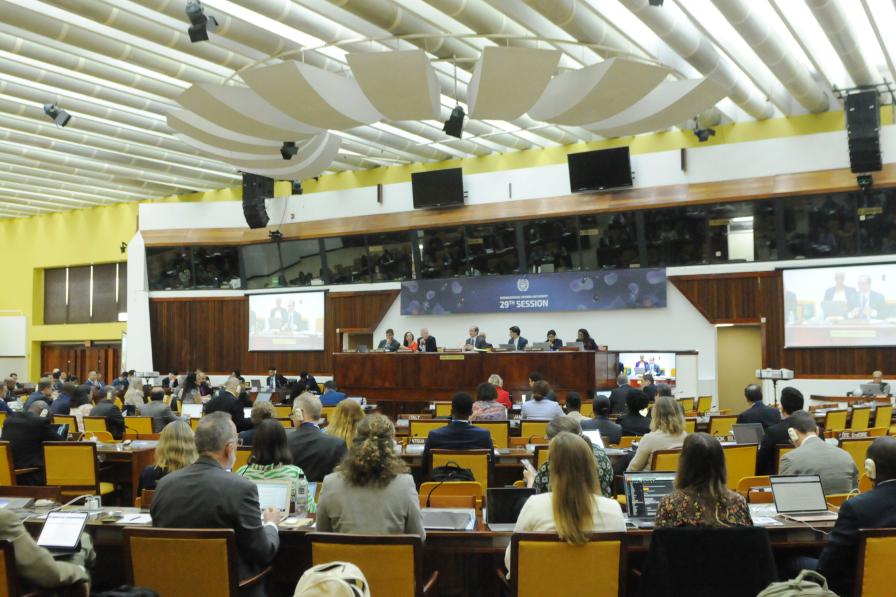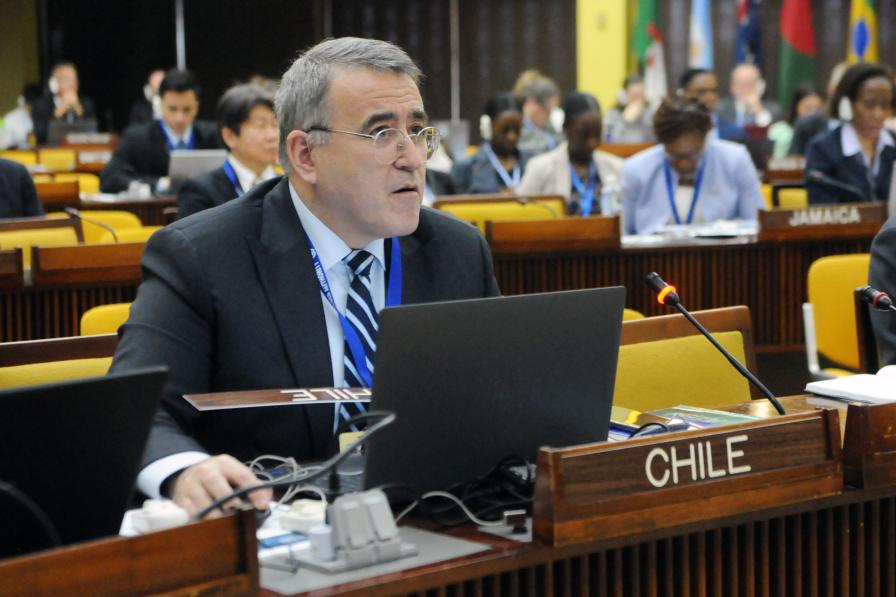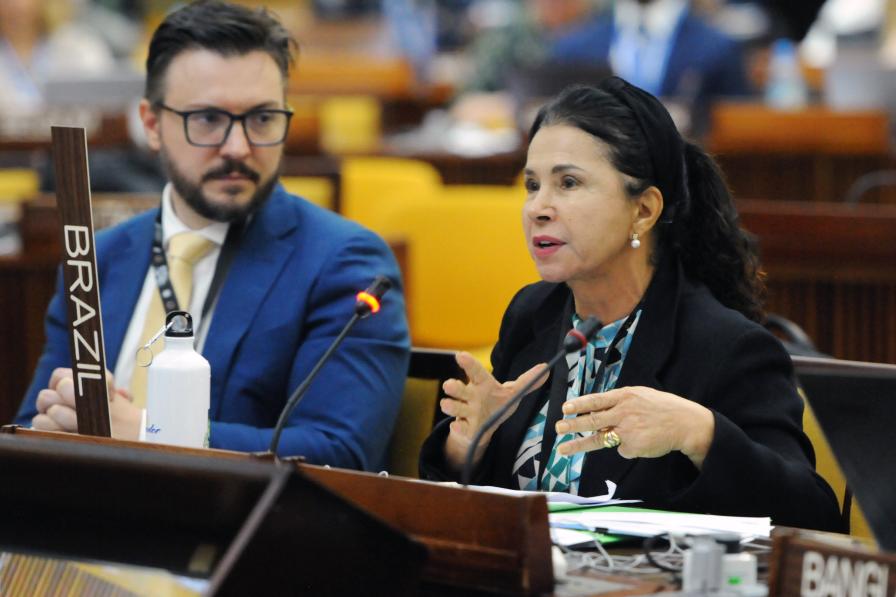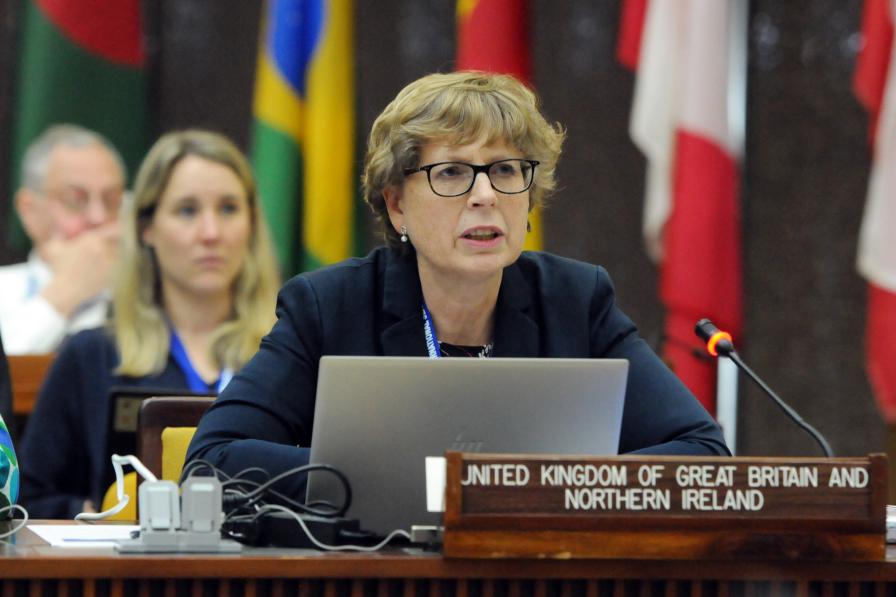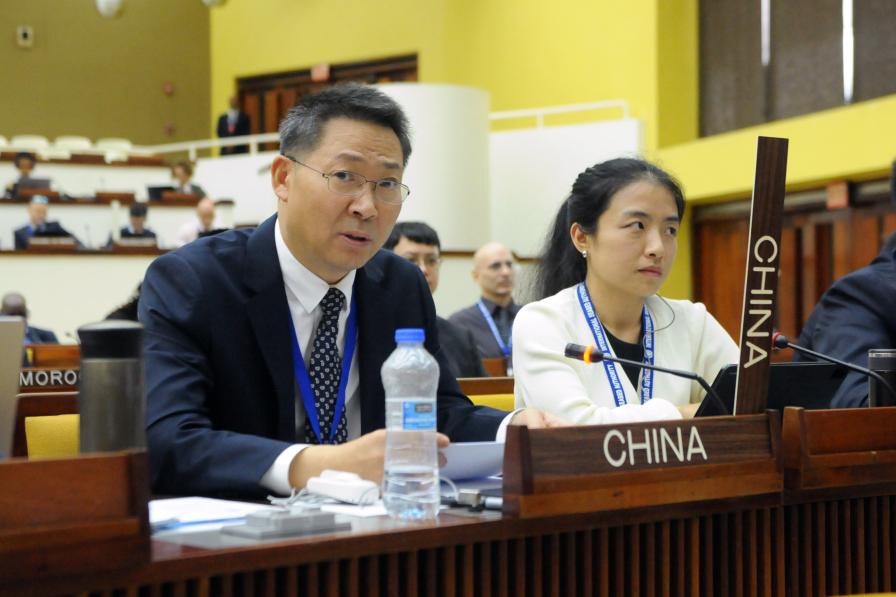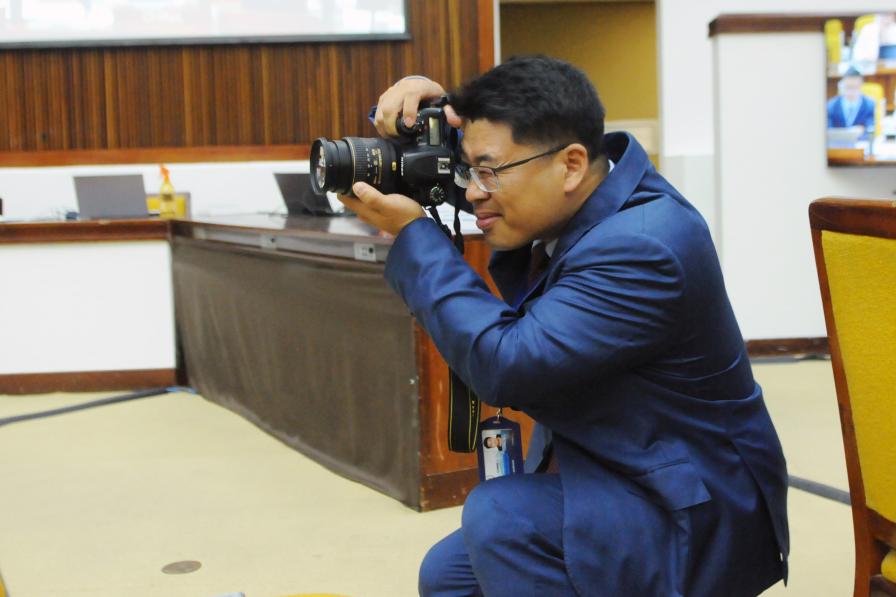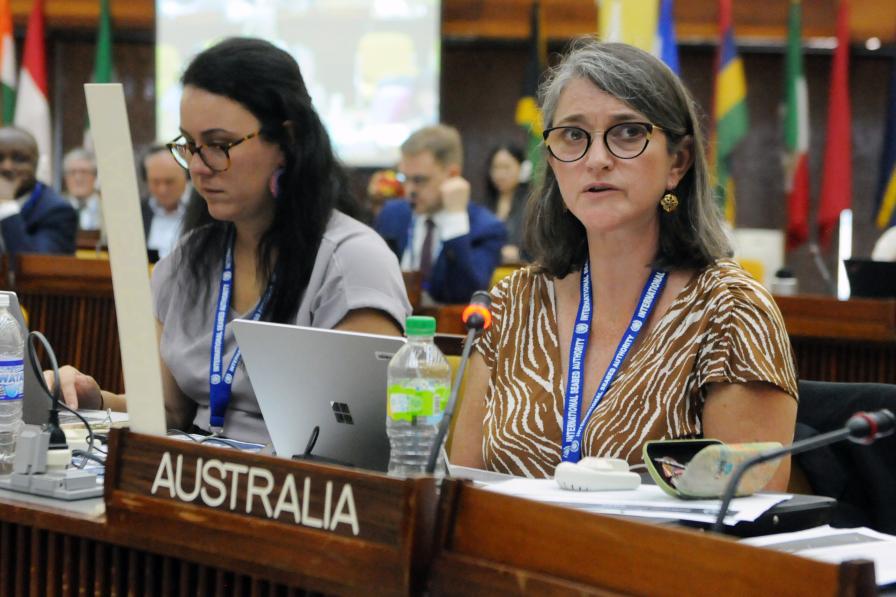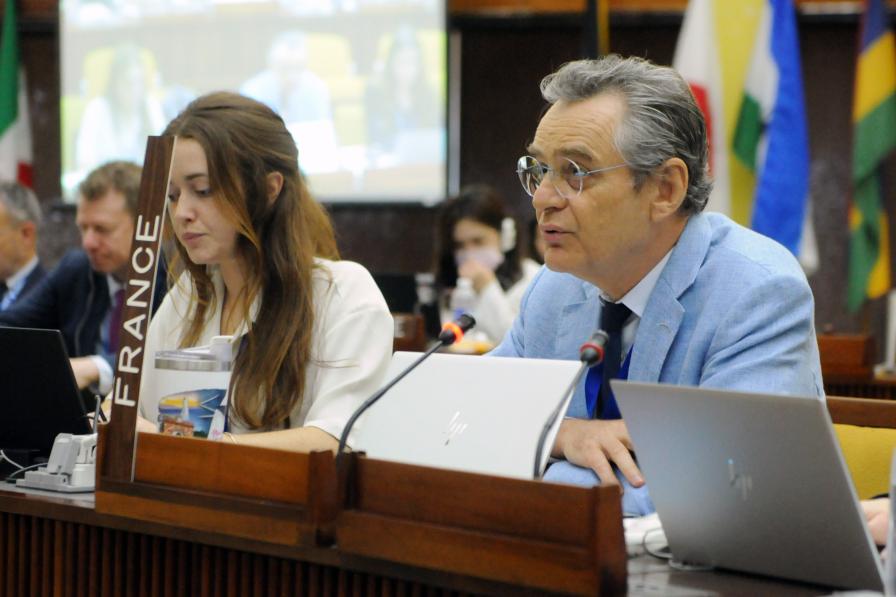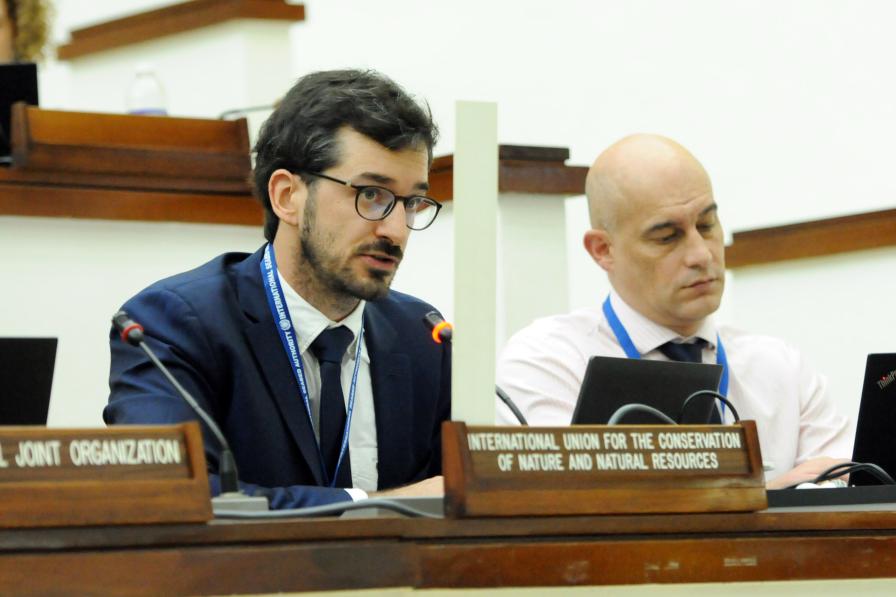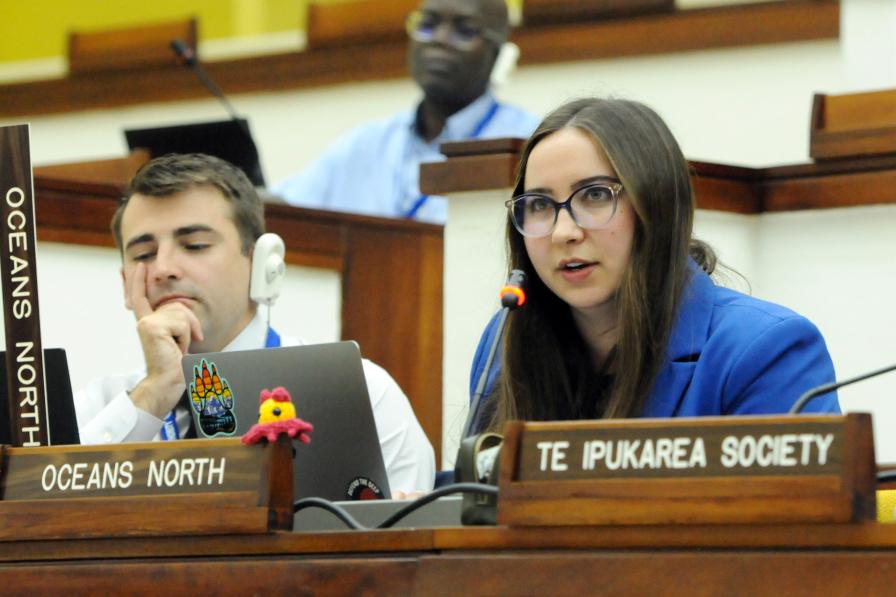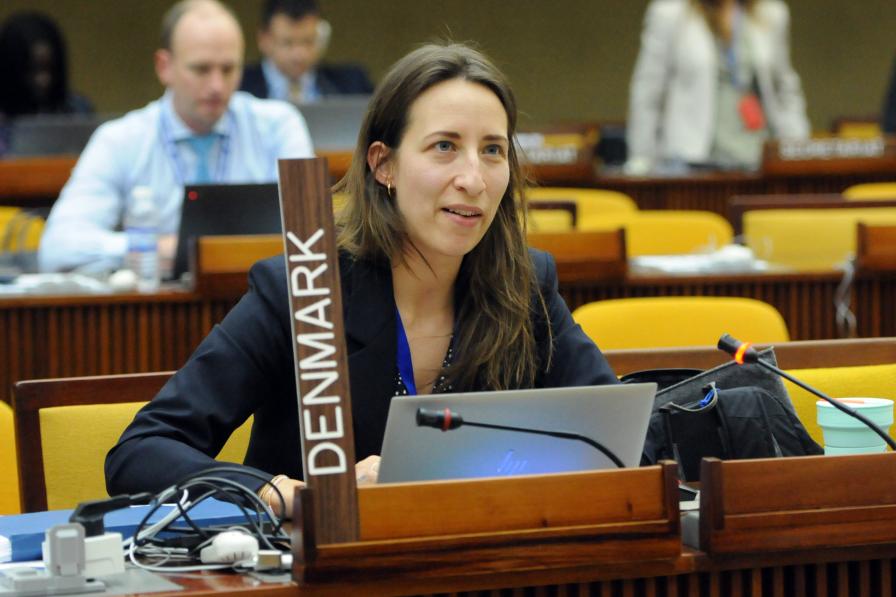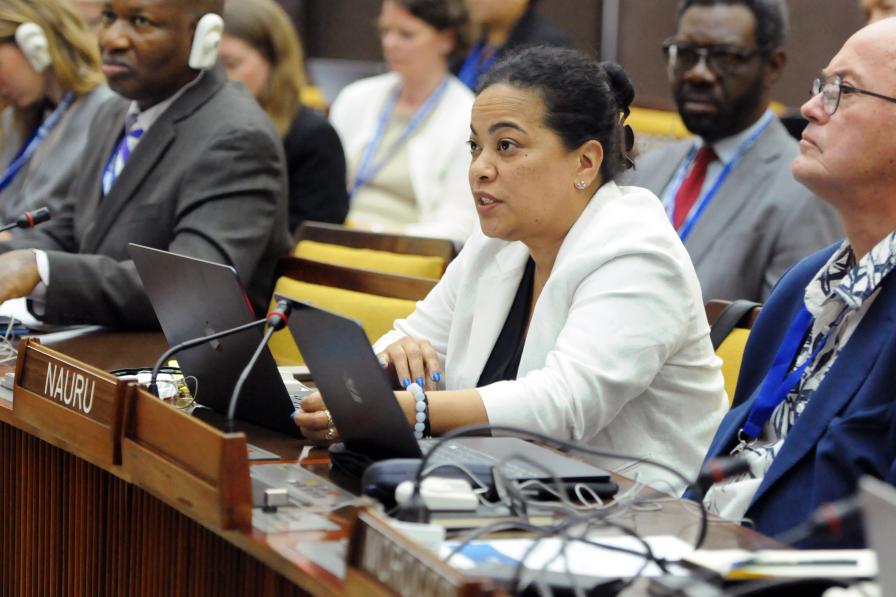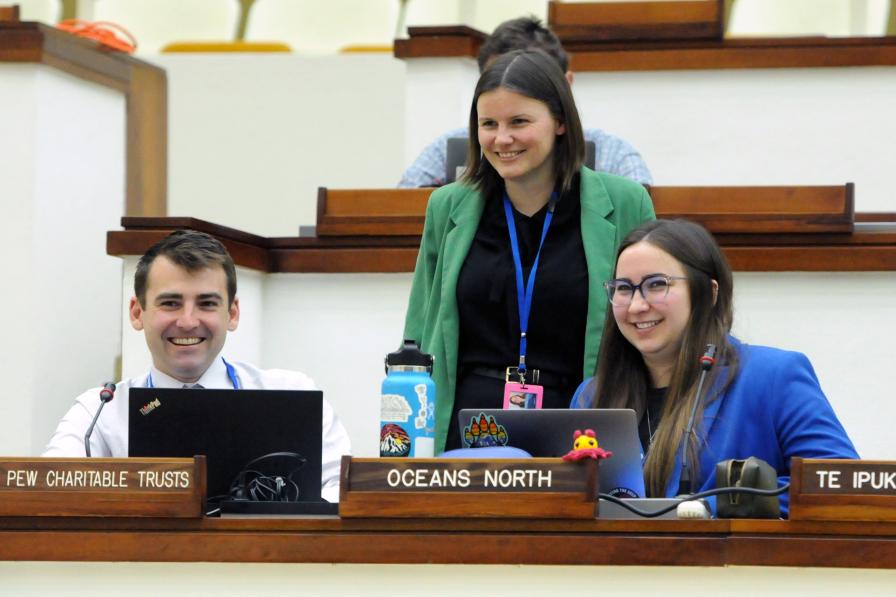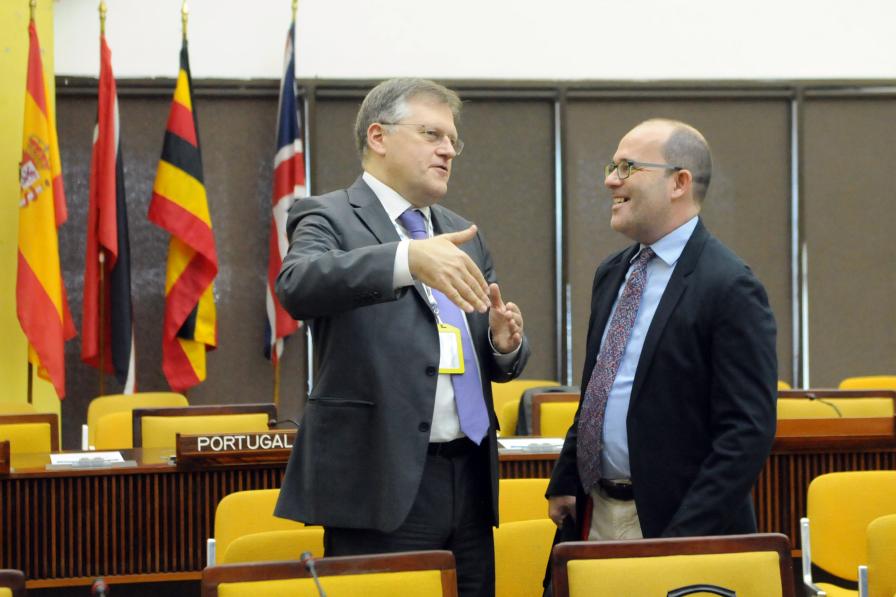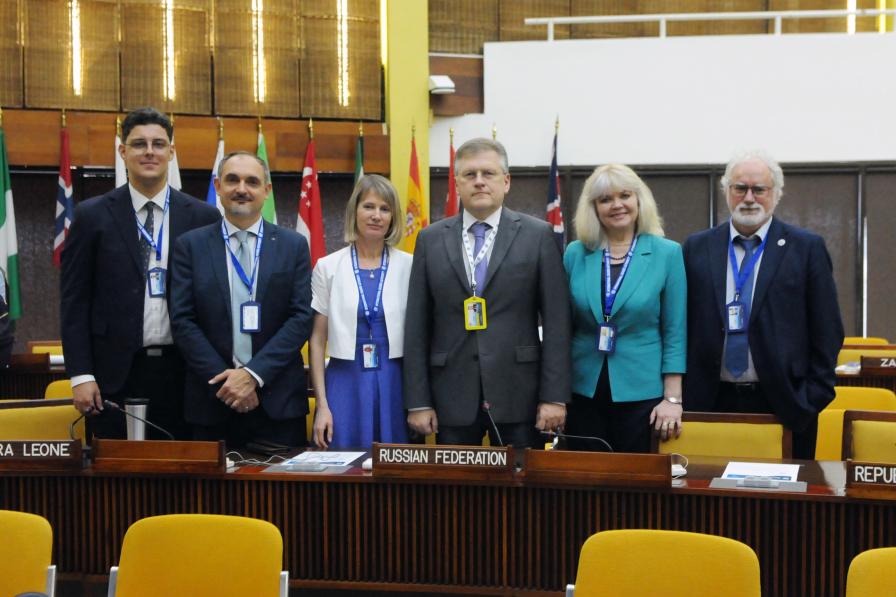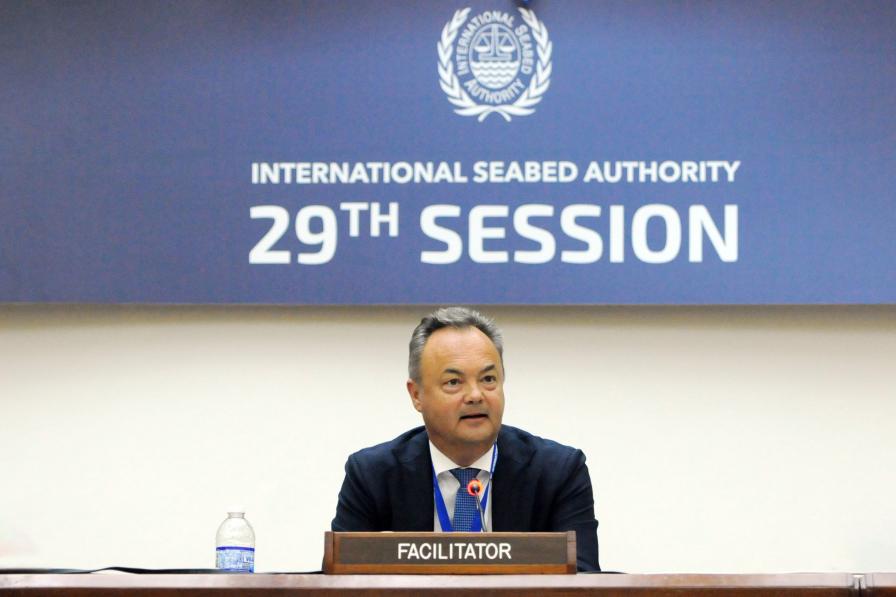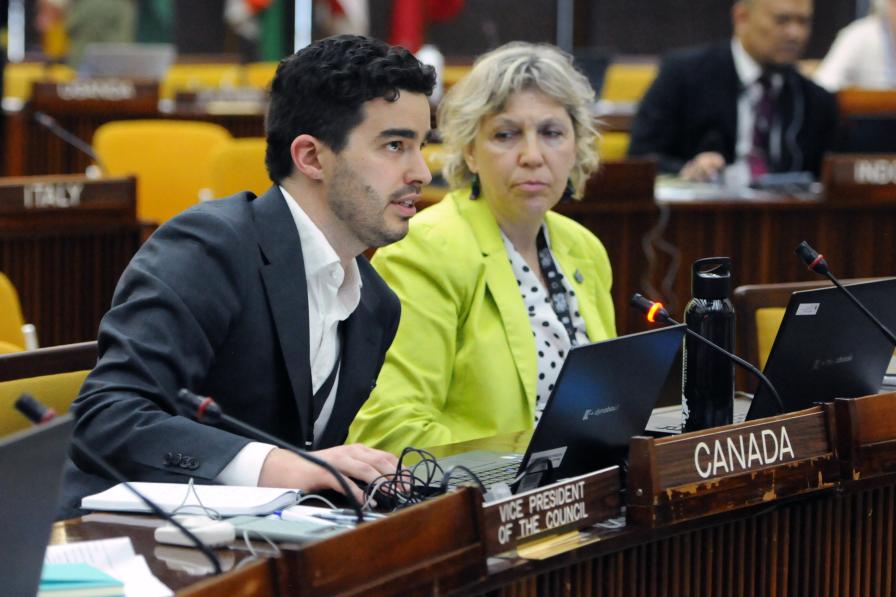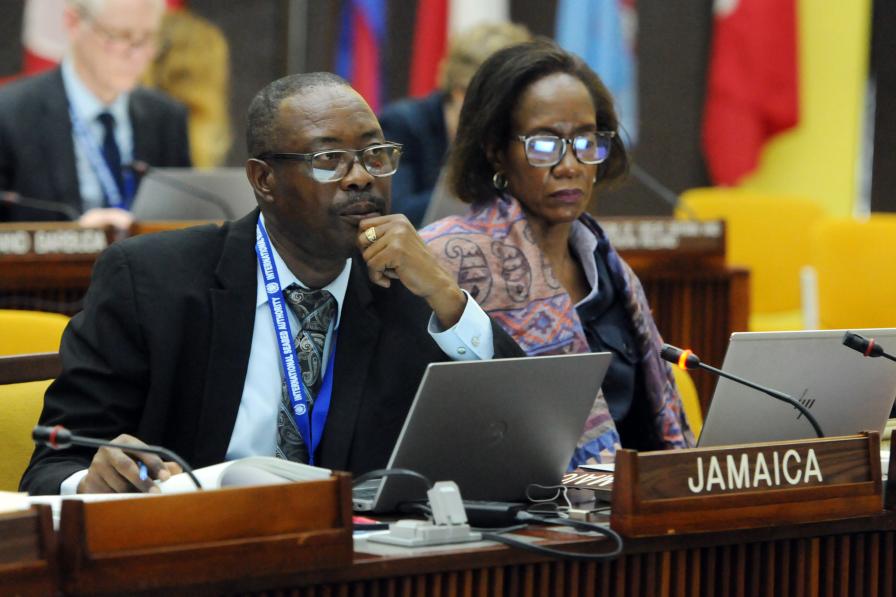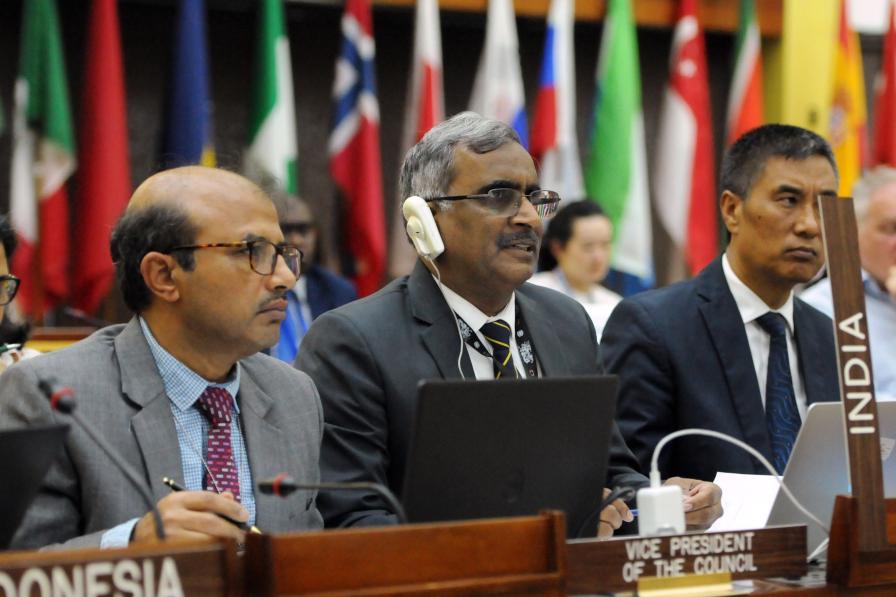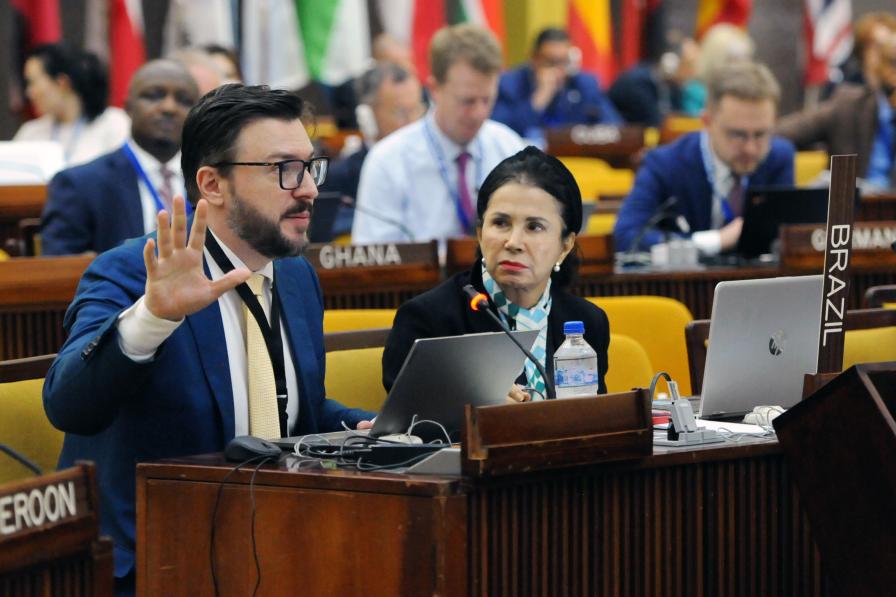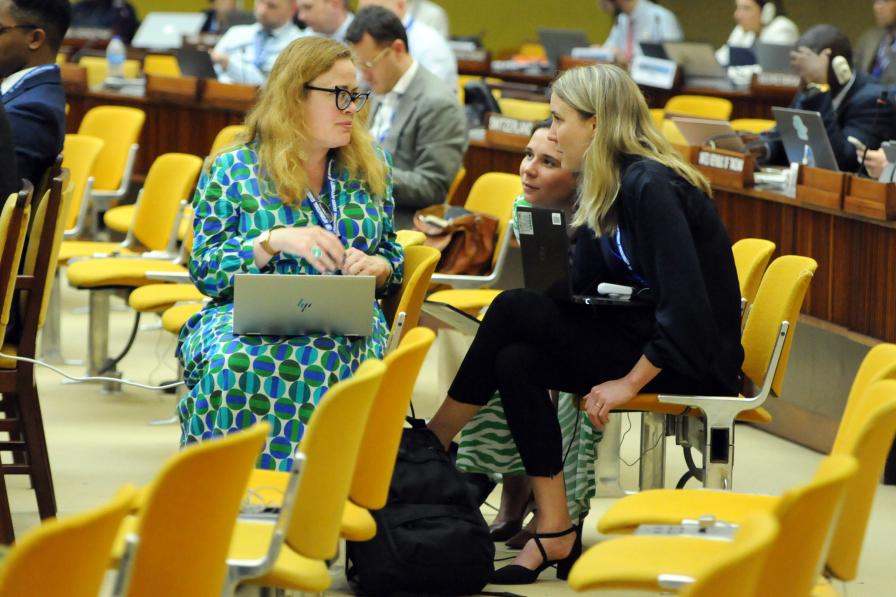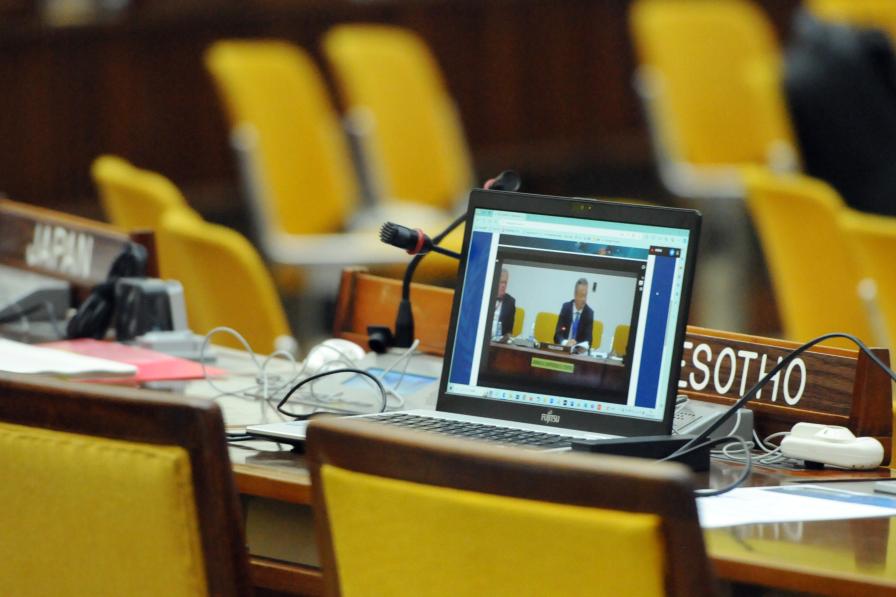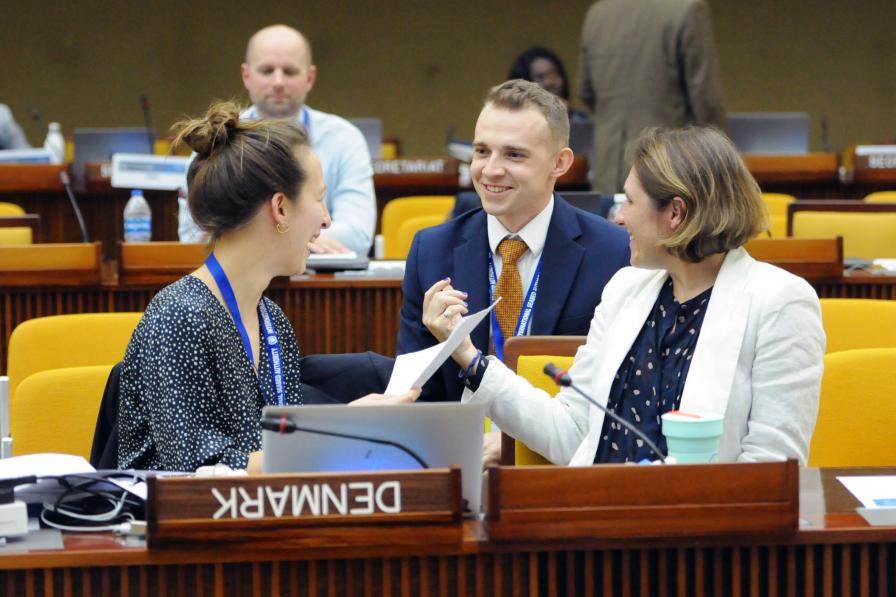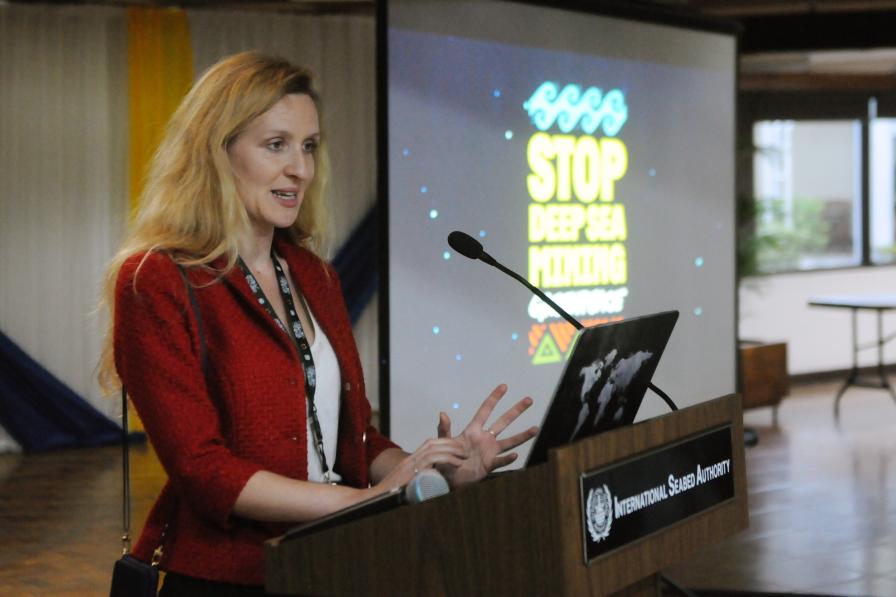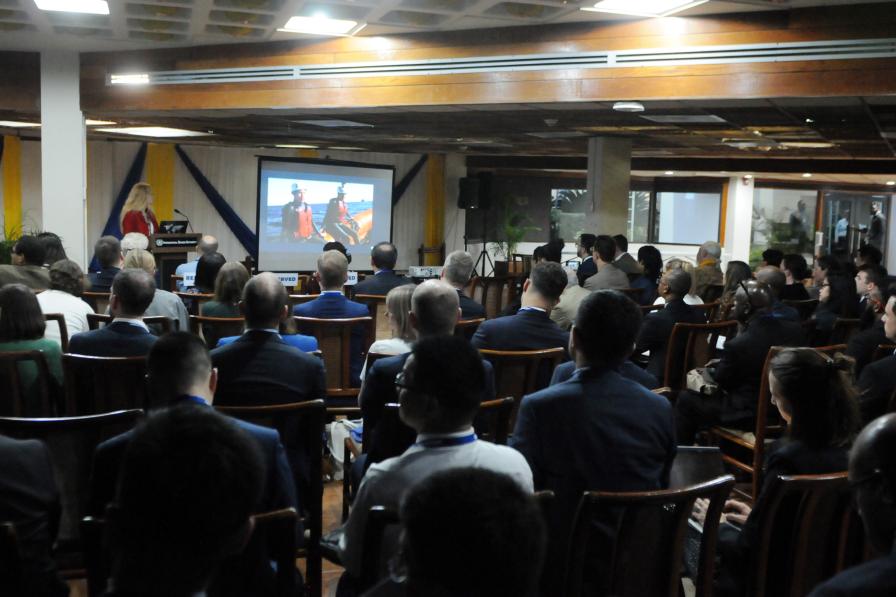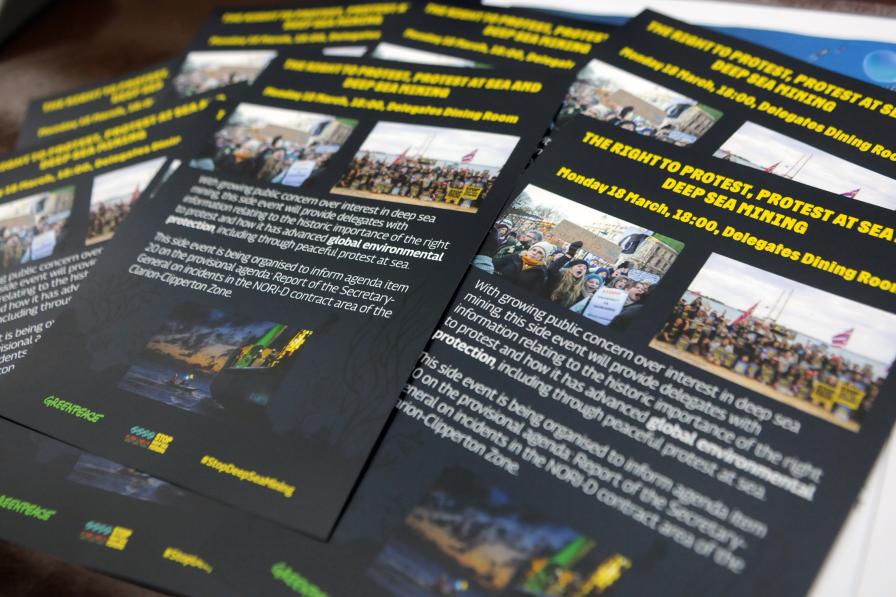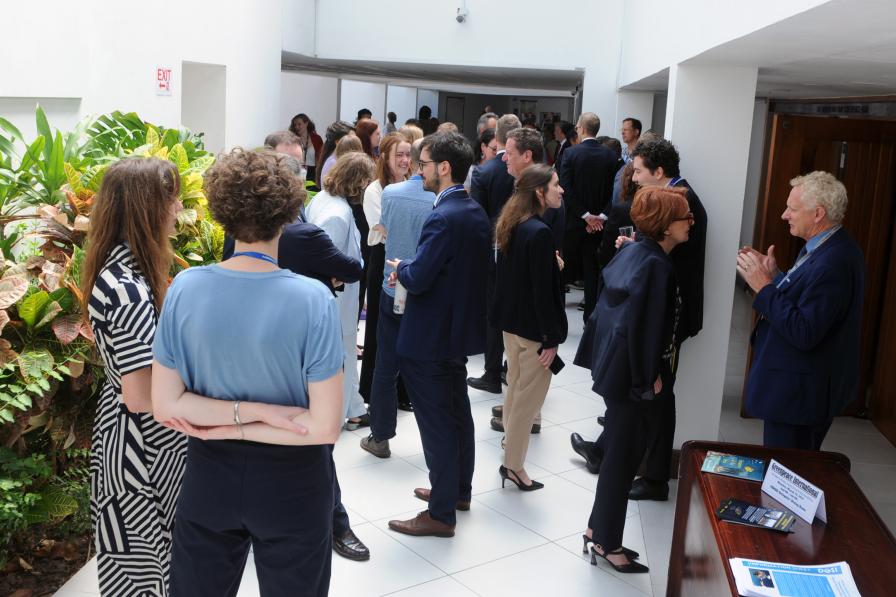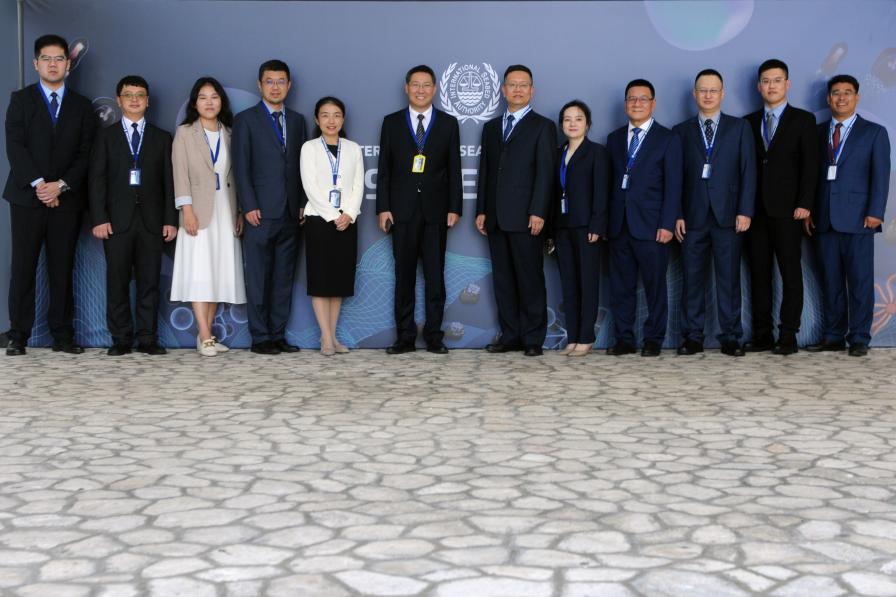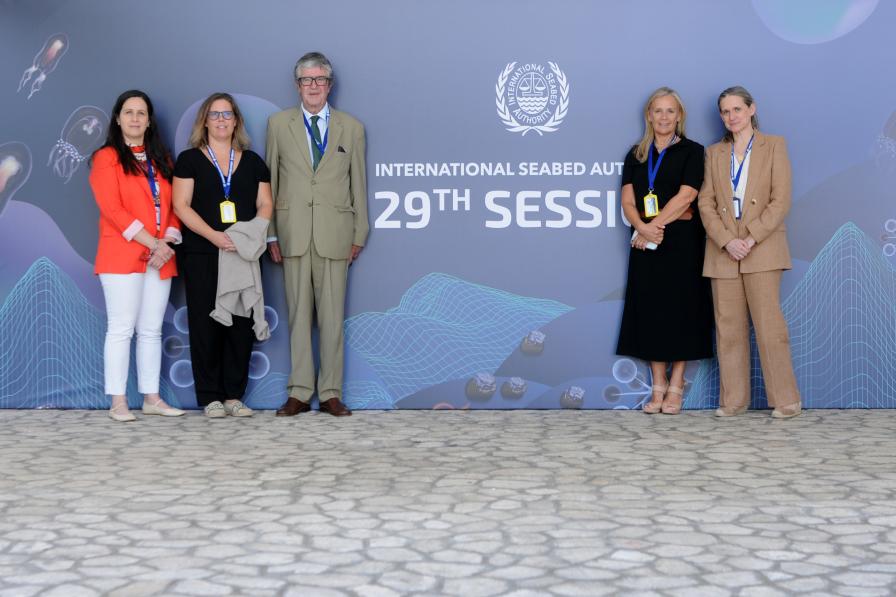The work of the International Seabed Authority (ISA) has been attracting increasing attention over the last few years. On the one hand, there is mounting pressure to expedite the development of exploitation regulations for deep-sea mining, which some ISA members are keen to pursue. On the other hand, an increasing number of countries have called for a precautionary pause or moratorium, highlighting the need for sufficient scientific evidence on the environmental impacts of deep-sea mining. Many delegates and observers consider the 29th annual session of the ISA as pivotal for the future of deep-sea mining.
President Juan José González Mijares, Mexico, opened the meeting, highlighting the consolidated document of the exploitation regulations as a basis for negotiations. He informed the Council that Tonga temporarily relinquished its position on the Council for 2024 in favor of Nauru.
ISA Secretary-General Michael Lodge considered the consolidated text a milestone that provides the opportunity to identify remaining aspects of the exploitation regulations that require further work.
Brazil officially announced Leticia Carvalho’s candidature for the position of ISA Secretary-General, highlighting her professional qualifications and the opportunity to improve gender equality at the ISA.
Several members, including Costa Rica, Germany, France, the Netherlands, and others questioned the new working modalities, and opposed restricting observer participation. Some delegates noted the consolidated text is neither consensual nor final. Others underscored that while informal meetings can be useful, the process is not mature enough to envisage such modalities.
Some members, including Germany and Chile, noted inconsistencies in the way countries’ proposals have been included in the consolidated text. Chile further queried the nature and scope of the “suspense document,” which includes elements of the draft exploitation regulations to be relocated under appropriate standards and guidelines.
Others, including Bangladesh, China, Nauru, India, Trinidad and Tobago, and Jamaica, noted that the consolidated text provides a solid foundation for Council deliberations, and that discussing priority issues in informal groups can improve efficiency and advance the negotiations.
Interim Director-General of the Enterprise Eden Charles stressed that working modalities that include informal discussions are consistent with approaches used in other multilateral negotiations.
The Russian Federation and China expressed concerns about the US decision to unilaterally establish the outer limits of its extended continental shelf, without approval by the Commission on the Limits of the Continental Shelf (CLCS), noting that such actions present a threat to the common heritage of humankind regime.
The US replied that the process was in accordance with relevant United Nations Convention on the Law of the Sea (UNCLOS) provisions, and scientific and technical advice from the CLCS, pointing towards a package of information to be submitted to the CLCS.
Observers highlighted that UNCLOS is clear regarding ISA’s dual mandate to ensure deep-sea mining benefits for humankind while effectively protecting the marine environment.
Discussion on working modalities resurfaced when President Mijares introduced, and delegates approved, the provisional agenda.
Regarding the election of the Council President for the 29th session, Germany, coordinator of the Western European and Others Group (WEOG), noted the group is still consulting on the nomination. President Mijares said that, according to the Council rules of procedure, he will hold office until his successor is elected.
Uganda for the African Group, India for Asia-Pacific, and Canada for WEOG were elected as Vice-Presidents, with the election of a representative of the Eastern European Group pending, together with the President’s election.
In the afternoon, Denmark announced its support for a precautionary pause.
Sissel Eriksen, Norway, Vice-Chair of the Legal and Technical Commission (LTC), presented the oral report of the work of the LTC, which met the previous week, noting among other things that the LTC:
- adopted criteria for identifying contractors at risk of non-compliance and modalities for exchanging views with contractors; and
- revised and completed the standardized procedure for developing, establishing, and reviewing regional environmental management plans and a template with minimum requirements.
President Mijares then invited delegates to focus on the substantive part of the negotiations, presenting the consolidated document. Members engaged once more in a discussion on its content, including the process through which it was developed, as well as on working modalities, in particular whether informal informals would be useful at this stage.
Following a vibrant discussion, President Mijares concluded that the consolidated text can be the basis for negotiations. He suggested that thematic discussions be held during this session, rather than informal informals, allowing broad participation.
With this understanding, the Open-ended Working Group on the financial terms of a contract started its work. Chair Olav Myklebust, Norway, invited delegates to focus on issues on policy and principles rather than engaging in a drafting exercise.
Members initiated discussions on the use of incentives (Regulation 63), discussing, among other things, whether equality of treatment (Regulation 62) can sometimes be understood as a kind of incentive. They further reflected on the principles to govern the review of royalty payments, including the system of payments and relevant modalities, and initiated discussions on the commencement of commercial production. Discussions will continue on Tuesday.
In the evening, a side event organized by Greenpeace International addressed “the right to protest, protest at-sea and deep-sea mining.”
To receive free coverage of global environmental events delivered to your inbox, subscribe to the ENB Update newsletter.
All ENB photos are free to use with attribution. For the 1st Part of the 29th Annual Session of the ISA, please use: Photo by IISD/ENB | Diego Noguera
